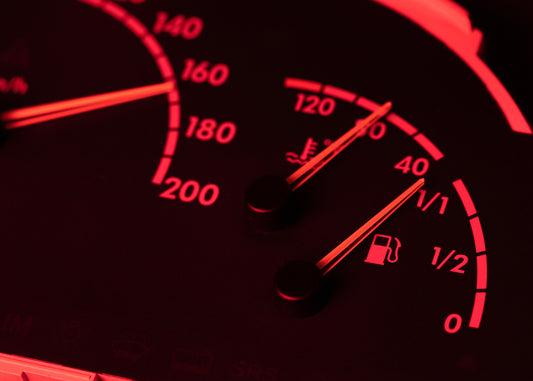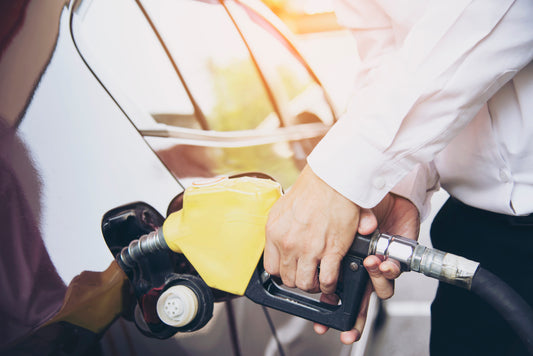Gasoline is a valuable resource that many people rely on for transportation and various other purposes. However, storing gasoline for a long period of time can be a complex process that requires careful attention.
In this guide, we will discuss the basics of gasoline, the importance of proper storage, and provide step-by-step instructions for storing gasoline long term. We will also cover maintenance and troubleshooting tips to ensure the stored gasoline remains in good condition.
Understanding the Basics of Gasoline
Gasoline is a volatile, flammable liquid that is derived from crude oil through refining processes. It is used as a fuel for internal combustion engines, powering various vehicles and equipment.
Gasoline plays a crucial role in our daily lives, fueling cars, trucks, motorcycles, lawnmowers, and a wide range of other machinery that we rely on for transportation and work. Its combustible nature and energy density make it a popular choice for powering internal combustion engines efficiently.
What is Gasoline?
Gasoline is a complex mixture of hydrocarbons, which are chemical compounds composed of hydrogen and carbon atoms. The precise composition of gasoline can vary, but it typically contains a combination of different hydrocarbon molecules that have been refined to meet specific requirements for engine performance and emissions control.

Refineries carefully design the refining processes to produce gasoline with the right balance of properties, such as volatility, octane rating, and energy content, to ensure optimal engine performance and fuel efficiency.
This meticulous process involves distillation, cracking, and blending of various hydrocarbons to create the final gasoline product that we use every day.
Why Proper Storage is Essential?
Proper storage of gasoline is essential to maintain its performance and safety. When gasoline is improperly stored, it can degrade over time, leading to reduced engine performance and potential damage to equipment. Additionally, gasoline vapor is highly flammable, and improper storage can increase the risk of fire or explosion.

Storing gasoline in approved containers in a well-ventilated, cool location away from potential ignition sources is crucial to prevent accidents and ensure the longevity of the fuel.
Proper storage practices also involve monitoring the quality of gasoline through visual inspection and periodic testing to ensure it remains suitable for use in engines without causing harm or inefficiencies.
Preparing for Long-Term Storage
Before storing gasoline for an extended period, several important factors need to be considered. These include choosing the right containers, implementing necessary safety measures, and understanding the potential risks associated with long-term gasoline storage.
Choosing the Right Containers
The first step in preparing for long-term storage of gasoline is to select appropriate containers. Gasoline should be stored in approved containers specifically designed for flammable liquids.
These containers should be made of materials that are compatible with gasoline, such as steel or high-density polyethylene. It is important to avoid using containers made of materials that can react with gasoline, such as certain types of plastic or glass.

Furthermore, when choosing containers for gasoline storage, it is crucial to consider factors such as size, durability, and ease of handling. Opt for containers with secure closures and built-in safety features to prevent leaks and spills.
Proper labeling of containers with the date of storage and type of fuel can also help ensure safe handling and disposal in the future.Safety Measures to Consider
When storing gasoline, it is crucial to adhere to certain safety measures to minimize the risk of accidents. Here are some important precautions to take:
- Store gasoline in a well-ventilated area that is away from ignition sources, such as open flames and electrical equipment.
- Avoid storing gasoline near heat sources, as high temperatures can increase the risk of vapor buildup and ignition.
- Ensure that the storage area is secure and inaccessible to children and pets.
- Keep a fire extinguisher nearby in case of emergencies.
Also, it is recommended to regularly inspect storage containers for signs of damage or deterioration and to follow proper disposal guidelines for old or contaminated gasoline. By taking these precautions and staying informed about safe storage practices, you can minimize the risks associated with long-term gasoline storage.
The Process of Storing Gasoline
Now that we have discussed the fundamentals of gasoline and the necessary preparations, let's dive into the step-by-step process of storing gasoline for the long term.
Step-by-Step Guide to Storing Gasoline
Follow these steps to effectively store gasoline:

- Choose a well-ventilated storage area that is cool and dry.
- Label the containers with the date and type of gasoline.
- Fill the approved containers with gasoline, leaving some headspace to accommodate expansion due to temperature changes.
- Tightly seal the containers to prevent the evaporation of gasoline vapor.
- Store the containers in an upright position to minimize the risk of leakage.
- Regularly inspect the containers for any signs of damage or degradation.
Tips for Maximizing Gasoline Shelf Life
To maximize the shelf life of stored gasoline, consider the following tips:
- Rotate the gasoline stock, using the oldest stock first.
- Use fuel stabilizers to reduce the degradation of gasoline over time.
- Avoid overfilling the storage containers to allow for expansion.
- Keep the storage area clean and free from debris.
- Monitor the storage area for temperature fluctuations and address any issues promptly.
Maintaining Stored Gasoline
Even with proper storage and adherence to best practices, gasoline can deteriorate over time. Regular checks and maintenance are crucial to ensure the stored gasoline remains viable.
Regular Checks and Maintenance
Perform the following checks and maintenance tasks regularly:
- Inspect the containers for any signs of leakage or damage.
- Check the color and odor of gasoline to ensure it is within acceptable parameters.
- Monitor the temperature and humidity of the storage area.
- Keep containers away from direct sunlight and extreme temperature fluctuations.
When and How to Use Stored Gasoline
Stored gasoline should be used within a reasonable period to ensure optimal performance. As a general guideline, aim to use stored gasoline within six months to one year. However, if properly stored and maintained, gasoline can remain usable for a longer period.
When using stored gasoline, follow these guidelines:
- Use a fuel stabilizer if the gasoline has been stored for an extended period.
- Only use stored gasoline in equipment and vehicles that are compatible with its octane rating.
- Follow the manufacturer's instructions regarding the proper fuel-to-oil ratio, if applicable.
Troubleshooting Common Issues
Despite taking all the necessary precautions, certain issues may still arise when storing gasoline. Understanding potential problems and their solutions can help address these issues effectively.
Identifying Potential Problems
Here are some common issues to watch out for:
- Phase separation: When the ethanol content of gasoline absorbs water, causing layer separation and a milky appearance.
- Vapor pressure loss: Gasoline loses its volatility over time, leading to difficulty in starting engines.
- Contamination: Foreign substances, such as dirt or debris, entering the storage containers.
Solutions for Common Storage Issues
To mitigate these common issues, consider the following solutions:
- If phase separation occurs, it is best to discard the affected gasoline and avoid using it.
- To restore lost vapor pressure, adding fresh gasoline or a fuel additive can be beneficial.
- Filter stored gasoline before use to remove any contaminants.

Final Words!
By adhering to proper storage techniques, regular checks, and necessary maintenance, storing gasoline long term can be a safe and effective process.
Remember to always prioritize safety and follow local regulations regarding gasoline storage. With the information provided in this storage guide, you can confidently store gasoline for future use.
You can also check out our high performance fuel additives, how to stop Leaking Fuel Tanks or read our guide on how to clean fuel injectors for maximum performance.






